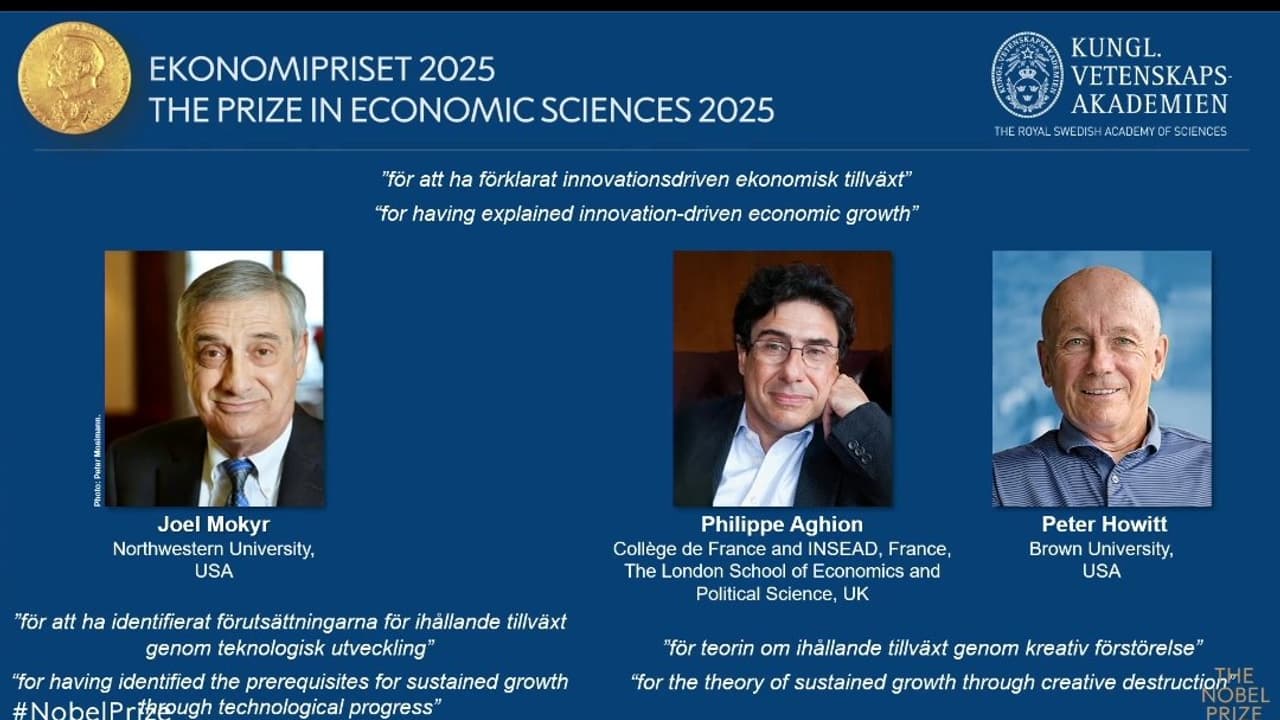The Royal Swedish Academy of Sciences has decided to award the 2025 Sveriges Riksbank Prize in Economic Sciences in Memory of Alfred Nobel to Joel Mokyr, Philippe Aghion and Peter Howitt “for having explained innovation-driven economic growth”.
The Royal Swedish Academy of Sciences on Monday awarded the 2025 Sveriges Riksbank Prize in Economic Sciences in Memory of Alfred Nobel to Joel Mokyr, Philippe Aghion and Peter Howitt “for having explained innovation-driven economic growth” with one half to Mokyr “for having identified the prerequisites for sustained growth through technological progress” and the other half jointly to Aghion and Howitt “for the theory of sustained growth through creative destruction.”
Scroll to load tweet…
The Nobel economics prize consists of a diploma, a gold medal and a $1.2 million cheque. The economics prize is formally known as the Bank of Sweden Prize in Economic Sciences in Memory of Alfred Nobel. The central bank established it in 1968 as a memorial to Nobel, the 19th-century Swedish businessman and chemist who invented dynamite and established the five Nobel Prizes.
Since then, it has been awarded 56 times to a total of 96 laureates.
Last year’s award went to three economists — Daron Acemoglu, Simon Johnson and James A. Robinson — who studied why some countries are rich and others poor and have documented that freer, open societies are more likely to prosper.
The 2025 Nobel season has awarded two women: American Mary Brunkow, who was co-recipient of the medicine prize, and Venezuelan opposition leader Maria Corina Machado who won the Nobel Peace Prize.
The economics prize is the only Nobel not among the original five created in the will of Swedish scientist Alfred Nobel, who died in 1896.
It was instead created through a donation from the Swedish central bank in 1968, leading detractors to dub it “a false Nobel”.
“If he had written his will today, I believe that economics would be included, as it is so important for our understanding of world events and how we can improve our societies,” Dahlen said.
